Consumer Guide to Using Bentonite Clay for Internal and External Benefits
Have you tried it?
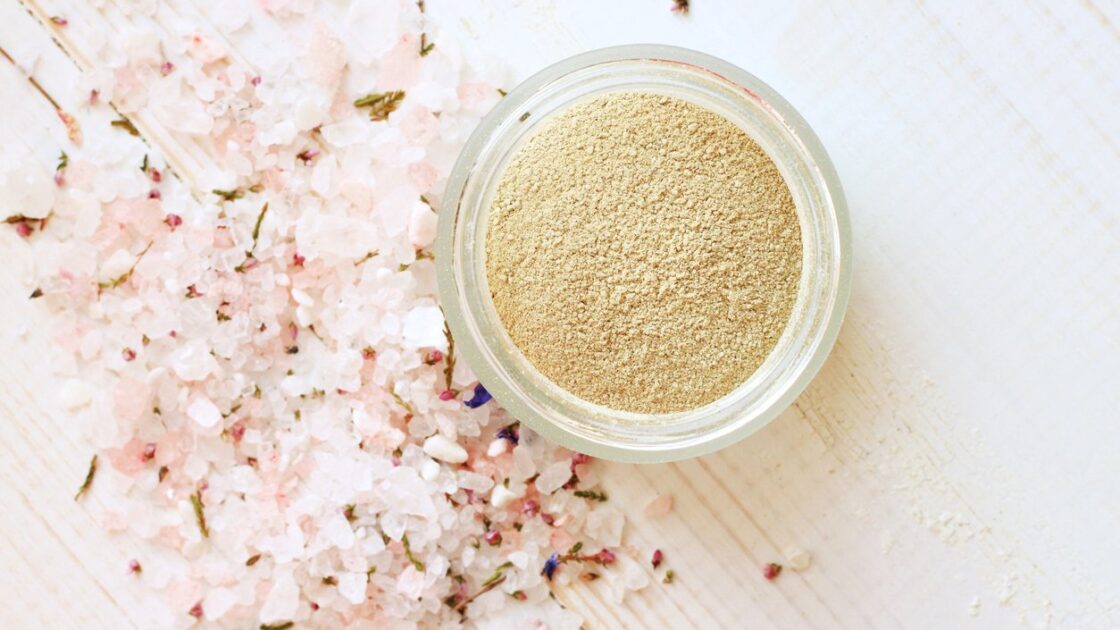
Healers, estheticians, herbalists, and even nutritionists have cited Bentonite clay as a superfood for its detoxifying and healing properties. Used both topically (slathered on the face or skin) and orally (consumed in a drink or tonic), Bentonite clay is thought to draw out impurities and bind with toxins, too.
Note, there are special considerations when using Bentonite clay and purchasing the right brand and product. If you’ve considered grabbing a jar, but are unsure of what kind and what to look for, consider this Bentonite clay consumer guide your handbook.
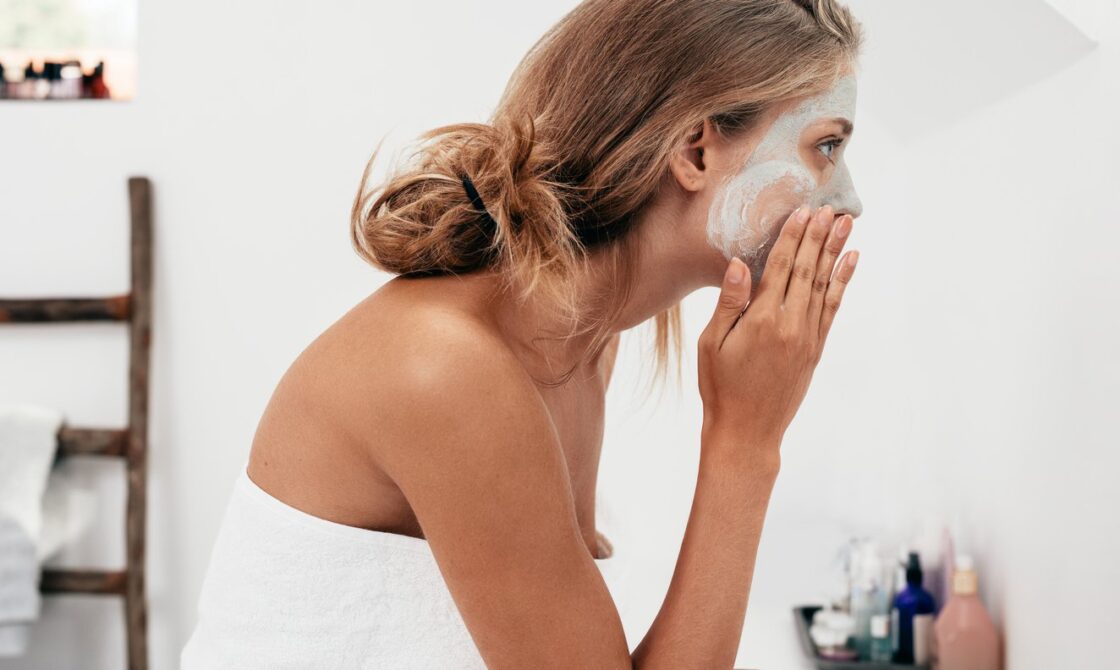
What is Bentonite Clay?
Bentonite clay, also known as Montmorillonite clay, is a type of clay derived from naturally occurring volcanic ash sediment. According to supplement and high-quality herb seller, Mountain Rose Herbs, “Bentonite clay is one of the most effective and powerful healing clays” and “has been traditionally used to assist in mineral deficiencies, and to help bind toxins making them more soluble.”
Dr. Joshua Axe, DNM, DC, CNS notes, “Bentonite clay stems back far in history as a traditional healing method for protecting the body from disease.”
Several traditional cultures in the Andres, Central Africa, and Australia have utilized and consumed clays in a variety of ways for centuries. “Because the clay is readily available and required no modern processing, it has been a popular and cost-effective way of ‘detoxing’ the body for quite some time,” Axe says.
Jars of Bentonite clay can be found online through reputable sellers like Mountain Rose Herbs, Amazon, or at health food stores like Whole Foods Market, Sprouts, and Natural Grocers. Jars of clay are usually less than fifteen dollars at most retailers.
The Health and Healing Benefits of Bentonite Clay
Bentonite clay possesses detoxifying properties due to its unusual molecular structure. Once the clay becomes hydrated, Mountain Rose Herbs notes, “The electrical and molecular components of the clay rapidly change and produce an electrical charge.”
This allows the clay to “swell” like a porous sponge and then draw out toxins from the skin and body. Dr. Axe notes, “While in its natural state, bentonite clay has negatively charged molecules. Most toxins and heavy metals have positively charged molecules. This allows the two to bind together easily and stay united while the toxin removal process happens.”
This means that once the toxins and clay are bound together, the clay is then able to “help remove toxins, chemicals, impurities and “heavy metals” from the gut, skin, and mouth,” says Dr. Axe.
Bentonite clay possesses a variety of other healing properties including:
- Trace minerals such as calcium, magnesium, silica, sodium, copper, iron, and potassium. Dr. Axe considers, “When ingested into the body, either in a drink form or by eating the clay, its vitamins and minerals are absorbed similarly to how a supplement would be.”
- Heavy metal detoxification. Bentonite clay can expel several heavy metals and fight pathogens responsible for disease, including E. coli and the virus that causes staph infection, according to this 2008 study.
- Expelling damaging aflatoxins from the liver, according to this 2015 study.
- A 1995 study found that Bentonite clay can help to heal poison ivy.
- Speed up the healing time of dermatitis, wounds, and rashes when applied to the skin.
- Aid in digestive health and protect the lining of the intestines, which can prevent or aid in treating leaky gut.
- Protect the health of teeth and gums. Dr. Axe notes, “Bentonite clay binds to unhealthy substances in the mouth, such as around the teeth and on the tongue and gums, and helps to remove them before you swallow them and become sick.”
- A 2016 study on rats found that supplementing with Bentonite clay was correlated with weight loss and lowered cholesterol.
- In mice studies, Bentonite clay was shown to absorb thyroid hormones T3 and T4, which may help to lessen hyperthyroidism.
- A 2014 study showed that Bentonite clay caused cell death of colorectal cancer cells, without damaging DNA.
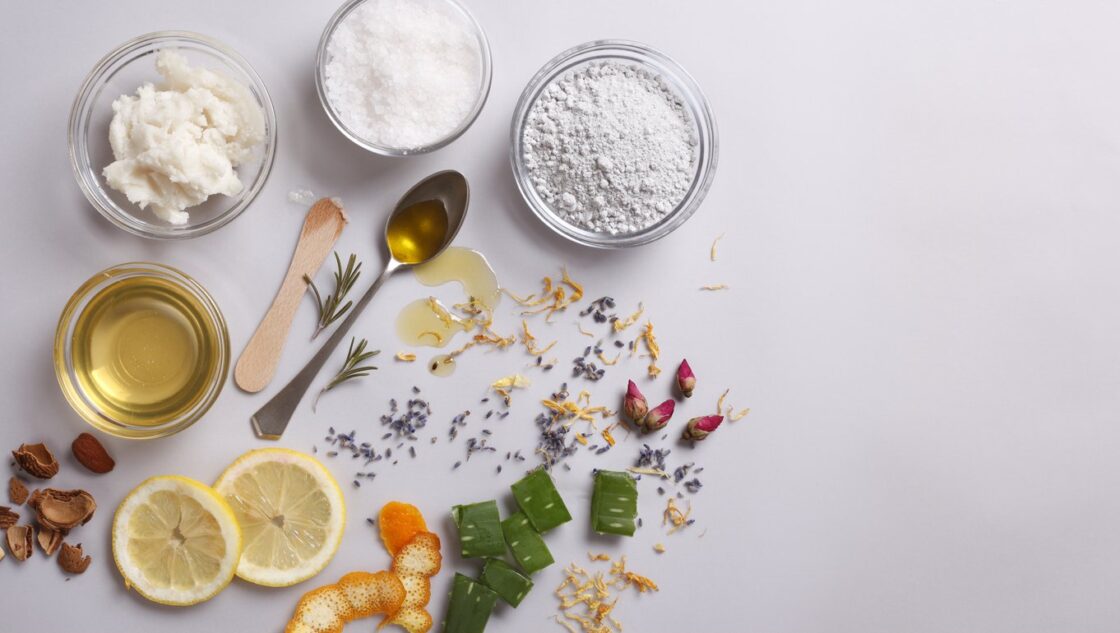
What You Should Know About Bentonite Clay
Although there are numerous studied health benefits associated with Bentonite clay, experts still exercise caution when consuming or suggesting consuming the clay.
One of the main concerns of Bentonite clay is the presence of lead. A 2016 report from the Food and Drug Administration (FDA) warns that consumers should not use the brand “Best Bentonite Clay,” a clay product from Guthrie, Oklahoma. According to the report, the “FDA has determined that the product contains elevated lead levels and may pose a lead poisoning risk.”
“Exposure to lead can cause serious damage to the central nervous system, kidneys, and immune system. In children, chronic exposure to lead, even at low levels, is associated with cognitive impairment, reduced IQ, behavioral difficulties, and other problems.” The FDA notes.
There are several reputable and high-quality brands of Bentonite clay that we love and trust, however. Find our favorites below. Always talk with a doctor or health care professional before adding a new supplement to your diet, including Bentonite clay.
Bentonite Clay Brands We Trust
Mountain Rose Herbs notes, “A good quality Bentonite should be a grey or cream color, and anything bordering ‘pure white’ is suspect.” Other red flags: unprofessional packaging (a Ziploc bag, for instance) or labeling, strong odors (the clay should be odorless), and an unrepeatable company without a web address, phone number, or contact address.
Reliable Bentonite clay sources are derived from a natural calcium Bentonite clay source and possess a pH of 8.7 or above. Our favorites are found below and have passed our rigorous testing for the highest, and healthiest quality.
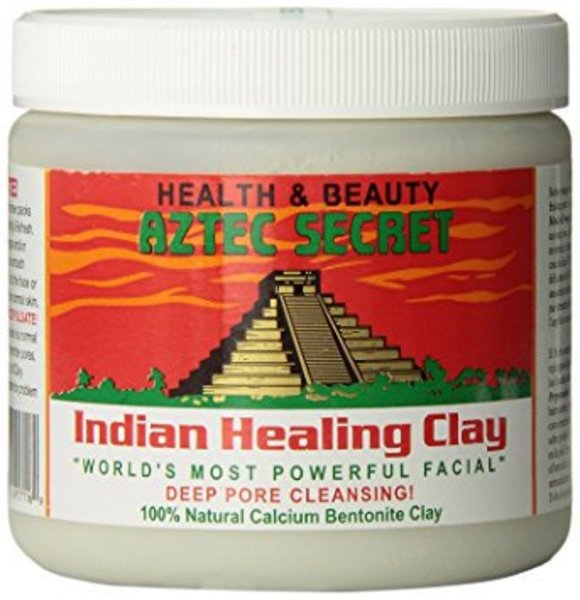
1. Aztec Secret Indian Healing Clay
Self-acclaimed to be “the world’s most powerful facial,” Aztec Secret Indian Healing Clay is one of the most popular beauty bestsellers on Amazon, with over 10,000 four or five-star reviews. The company notes that its Bentonite clay hails from Death Valley, California, where it’s sundried for up to six months in temperatures reaching on average 134 degrees. We suggest mixing a tablespoon of clay with apple cider vinegar or water and applying it to the skin for a powerful, purifying facial. Alternatively, add one teaspoon or less of Bentonite clay to water and drink.

2. Mountain Rose Herbs Bentonite Clay
Mountain Rose Herbs Bentonite clay is derived from untreated sodium Bentonite, which is mined from naturally occurring deposits. “After being mined from the earth, it is brought out into the sun to remove excess moisture and make it easier to work with,” the company notes.” Mountain Rose Herbs Bentonite is NSF certified and manufactured to ANSI/NSF 60 standards. After its final production, the clay is inspected by a quality team and sent off for consumer use. Mountain Rose Herbs notes to use their product topically, not orally.
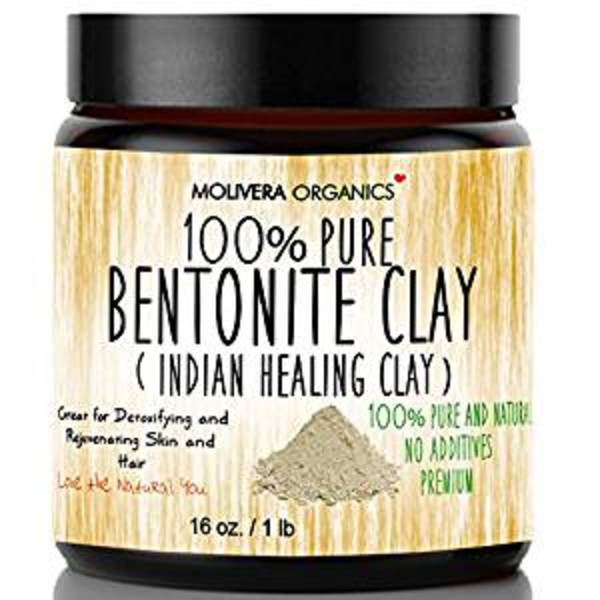
3. Molivera Organics Bentonite Clay
Molivera Organics Bentonite clay is made from 100 percent pure Sodium Bentonite clay from Wyoming. The company suggests that it can be used topically for increasing blood flow, drawing impurities from pores, and rejuvenating skin.
Our Criteria
We selected these three Bentonite clay brands based on our highest standards. Produced without additives and mysterious ingredients, these Bentonite clay brands are of the highest, purest quality.
We hope you found this guide to Bentonite Clay useful. To support Organic Authority in creating more guides like this, please use our affiliate links in the guide if you decide to make a purchase.
Related On Organic Authority
5 Types of Clay Mask Benefits: The Dirty Skincare Superstars
The Top 13 Naturally Functional Foods to Eat in 2018 for Whole Wellness
How To Choose the Best Wellness Treatments For Your Ayurvedic Dosha

